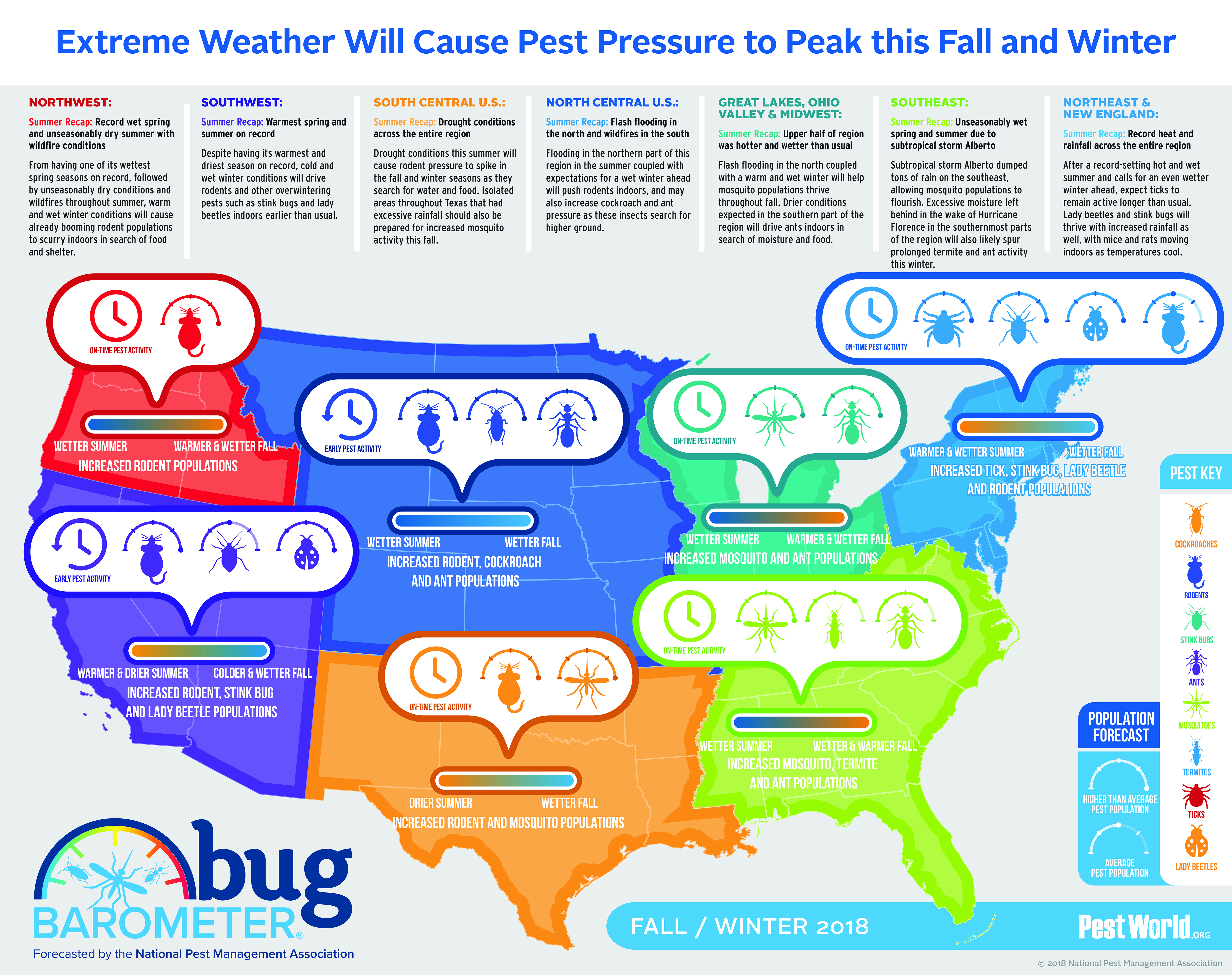Shield Your Yard From Vermins: Recommendations For Maintaining Unwanted Intruders Away
Shield Your Yard From Vermins: Recommendations For Maintaining Unwanted Intruders Away
Blog Article
Content Produce By-Vang Warren
Imagine your garden as a haven, an area of tranquility and charm. Nonetheless, the existence of outside insects can rapidly interrupt this picturesque picture. What if there were https://www.vbgov.com/residents/animals-pets/pages/default.aspx yet efficient methods to keep these undesirable visitors away and shield your garden oasis? By complying with a few practical tips and carrying out natural approaches, you can develop a harmonious exterior space where your plants can flourish uninterrupted.
Natural Insect Deterrents
To maintain insects far from your yard naturally, plant aromatic natural herbs like mint and lavender. These aromatic plants not only include beauty to your yard yet additionally act as efficient bug deterrents. Bugs like insects, flies, and even some garden-damaging pests are warded off by the strong scents discharged by these herbs. Simply placing them tactically around your yard can help produce an all-natural barrier against unwanted insects.
In addition to mint and lavender, consider planting various other natural herbs like rosemary, basil, and lemongrass to further improve your garden's pest-proofing capabilities. These herbs not only serve as natural repellents however likewise have actually the included benefit of being useful in food preparation or crafting homemade treatments.
Strategic Plant Positioning
Think about the design of your yard and the kinds of plants you have to strategically put them for optimum pest-proofing efficiency.
Begin by organizing clear defense pest control with comparable resistance to bugs with each other. By doing "pest control leads" , you can produce a natural barrier that prevents parasites from spreading throughout your garden.
In addition, putting pest-repelling plants like marigolds, lavender, or mint near more susceptible plants can help secure them. Tall plants, such as sunflowers or corn, can function as a guard for shorter plants versus pests like bunnies or ground-dwelling bugs.
Keep in mind to leave adequate area between plants to enhance air flow and minimize the risk of conditions that pests may carry.
Furthermore, take into consideration planting strong-smelling herbs like rosemary or basil near vulnerable plants to confuse parasites' senses and make it harder for them to locate their targets.
Reliable Insect Control Approaches
For combating yard parasites properly, executing a multi-faceted insect control approach is essential. Begin by motivating all-natural predators like birds, ladybugs, and praying mantises to help keep parasite populaces in check. Presenting plants that draw in these useful bugs can help in insect control. Additionally, exercising good yard hygiene by eliminating particles and weeds where parasites could hide can make your yard less welcoming to undesirable site visitors.
Think about utilizing physical barriers such as row cover textiles or netting to protect prone plants from insects like caterpillars and birds. Applying natural pesticides like neem oil or insecticidal soap can likewise be effective versus particular insects while being much less unsafe to beneficial pests and the setting. It's critical to turn your plants each period to prevent the buildup of bug populations that target certain plants.
Routinely examine your plants for signs of insect damage so you can do something about it promptly. By integrating these techniques and staying vigilant, you can efficiently regulate garden bugs and appreciate a successful, pest-free yard.
Final thought
So, there you have it - with the right strategies, you can keep pesky outdoor pests away from your garden and help your plants grow.
Did you know that growing mint has been revealed to ward off insects and various other pests, lowering the requirement for dangerous pesticides by approximately 60%?
By incorporating natural deterrents and smart growing strategies, you can develop a stunning and pest-resistant garden sanctuary for you to delight in.
